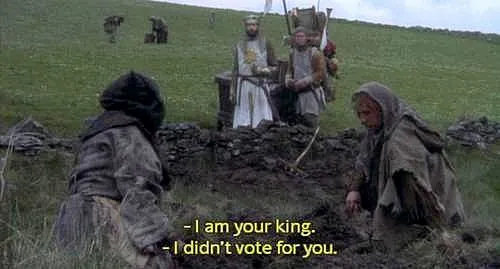
Word of the Day: Epiphany
Today’s word, thanks to Wiktionary, is epiphany, a noun with several meanings, all related: “[1] a Christian festival, observed on January 6, commemorating the manifestation of Christ to the gentiles in the persons of the Magi; [2] an appearance or manifestation, especially of a deity; [3] a sudden, intuitive perception of or insight into the reality or essential meaning of something, usually initiated by some simple, homely, or commonplace occurrence or experience; [4] a literary work or section of a work presenting, usually symbolically, such a moment of revelation and insight.” When used with the first definition, the word is usually capitalized.
According to www.etymonline.com, the word first appears in English in the early 14th century and comes “from Old French epiphanie, from Late Latin epiphania, neuter plural (taken as feminine singular), from late Greek epiphaneia ‘manifestation, striking appearance, festival held in commemoration of the appearance of a god at some particular place’ (in New Testament, ‘advent or manifestation of Christ’), from epiphanes ‘manifest, conspicuous,’ from epiphainein ‘to manifest, display, show off; come suddenly into view,’ from epi ‘on, to’ (see epi-) + phainein ‘to show’ (from PIE root *bha- (1) ‘to shine’). Of divine beings other than Christ, first recorded 1660s; general literary sense of ‘any manifestation or revelation’ appeared 1840, first in De Quincey.” De Quincey is the English Romantic poet and essayist Thomas De Quincey.
But in Panepiphanal World: James Joyce’s Epiphanies, Sangam MacDuff notes that Emerson had used the word epiphany in the same way in 1838:
We learn nothing rightly until we learn the symbolical character of life. Day creeps after day, each full of facts, dull, strange, despised things, that we cannot enough despise–call heavy, prosaic, and desert. The time we seek to kill: the attention it is elegant to divert from things around us. And presently the aroused intellect finds gold and gems in one of these scorned facts–then finds that the day of facts is a rock of diamonds; that a fact is an Epiphany of God. (Emerson on Education, ed. Edward Emerson)
Instead of focusing on one event that happened on this date in history, I’d like to present a list of things that have happened on this day, according to the On This Day website.
1017: Cnut the Great crowned king of England
1066: Harold Godwinson crowned king of England
1099 Henry V crowned German king
1205 Philip of Swabia becomes King of the Romans
1322 Stephen Uros III becomes King of Serbia
1355 Charles I of Bohemia is crowned with the Iron Crown of Lombardy
1449 Byzantine Emperor Constantine XI is crowned at Mistra.
1453 Emperor Frederik III becomes archduke of Austria
1617 English court favorite George Villiers is made Earl of Buckingham by King James I
1661 The Fifth Monarchists unsuccessfully attempt to seize control of London
1690 Joseph I, later Holy Roman Emperor and son of Emperor Leopold I, becomes King of the Romans
1929 Alexander I establishes a royal dictatorship in Yugoslavia
So I’m reminded of a bit from “Monty Python and the Holy Grail”:
“King Arthur: I am your king.
Peasant Woman: Well, I didn’t vote for you.
King Arthur: You don’t vote for kings.
Peasant Woman: Well, how’d you become king, then?
King Arthur: The Lady of the Lake, her arm clad in the purest shimmering samite, held aloft Excalibur from the bosom of the water, signifying by divine providence that I, Arthur, was to carry Excalibur. That is why I am your king.
Dennis the Peasant: Listen. Strange women lying in ponds distributing swords is no basis for a system of government. Supreme executive power derives from a mandate from the masses, not from some farcical aquatic ceremony.
Arthur: Be quiet!
Dennis the Peasant: You can’t expect to wield supreme power just ’cause some watery tart threw a sword at you!”
And yet, a “farcical aquatic ceremony” seems just as plausible a way to choose a supreme power as heredity. The notion that just because some guy’s father was king means that he will make a good king is absurd.
But you may have noticed that there was only one crowning of a king after the end of the 17th century. Oh, yes, we had one just recently, but the power of the English king today is nothing like what it was a few hundred years ago. It is as if the people of the world had a collective epiphany—that the time of someone ruling over lots of people with anything like absolute power or due to a divine right is over.
The image today is that scene from “Monty Python and the Holy Grail,” thanks to the Geeks in Sydney website.